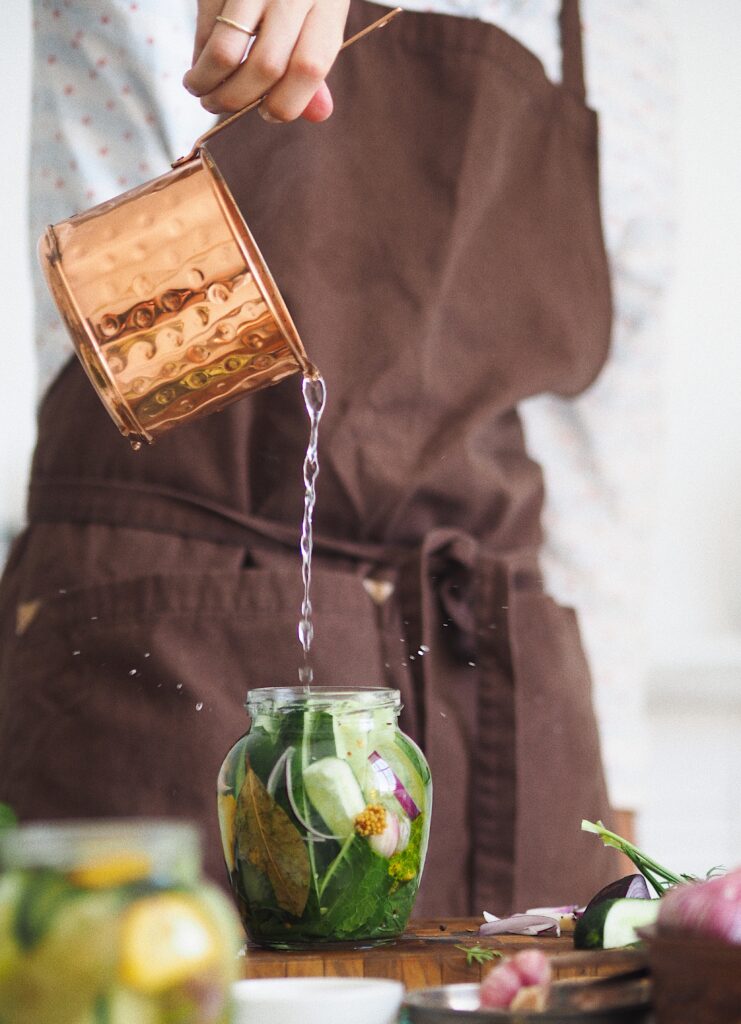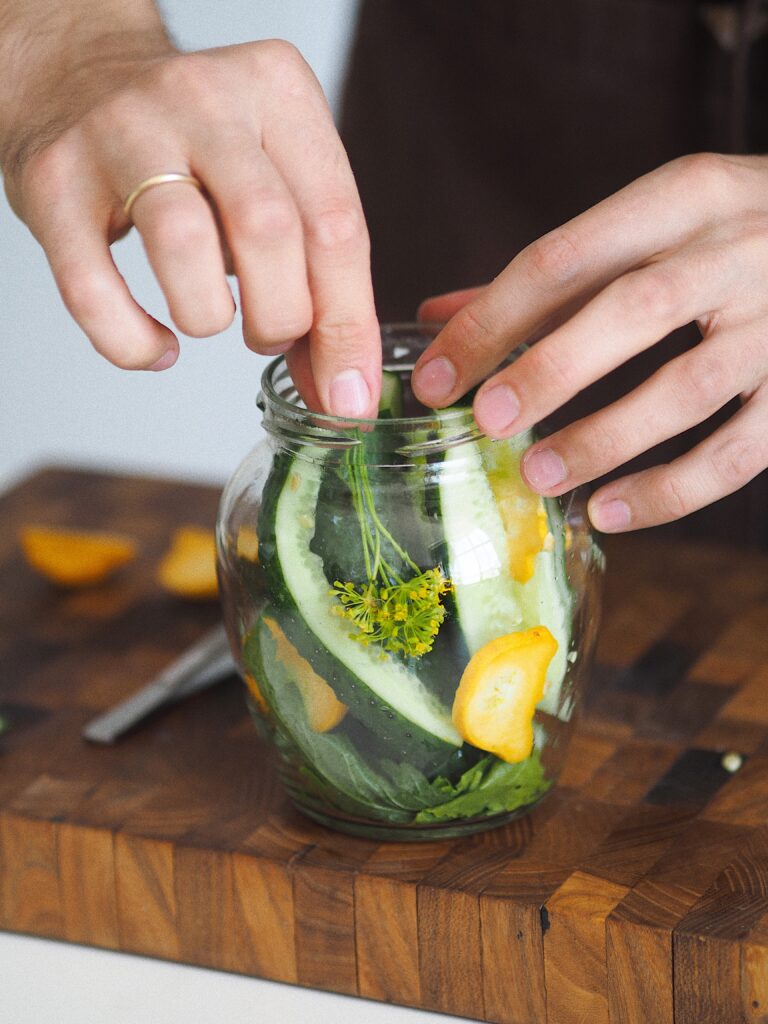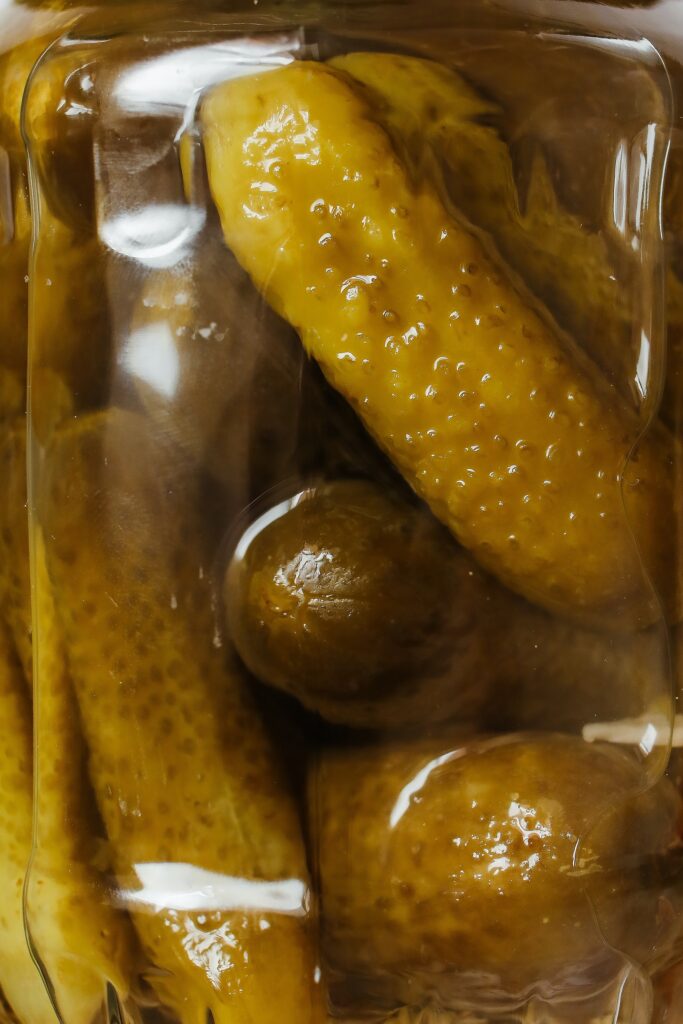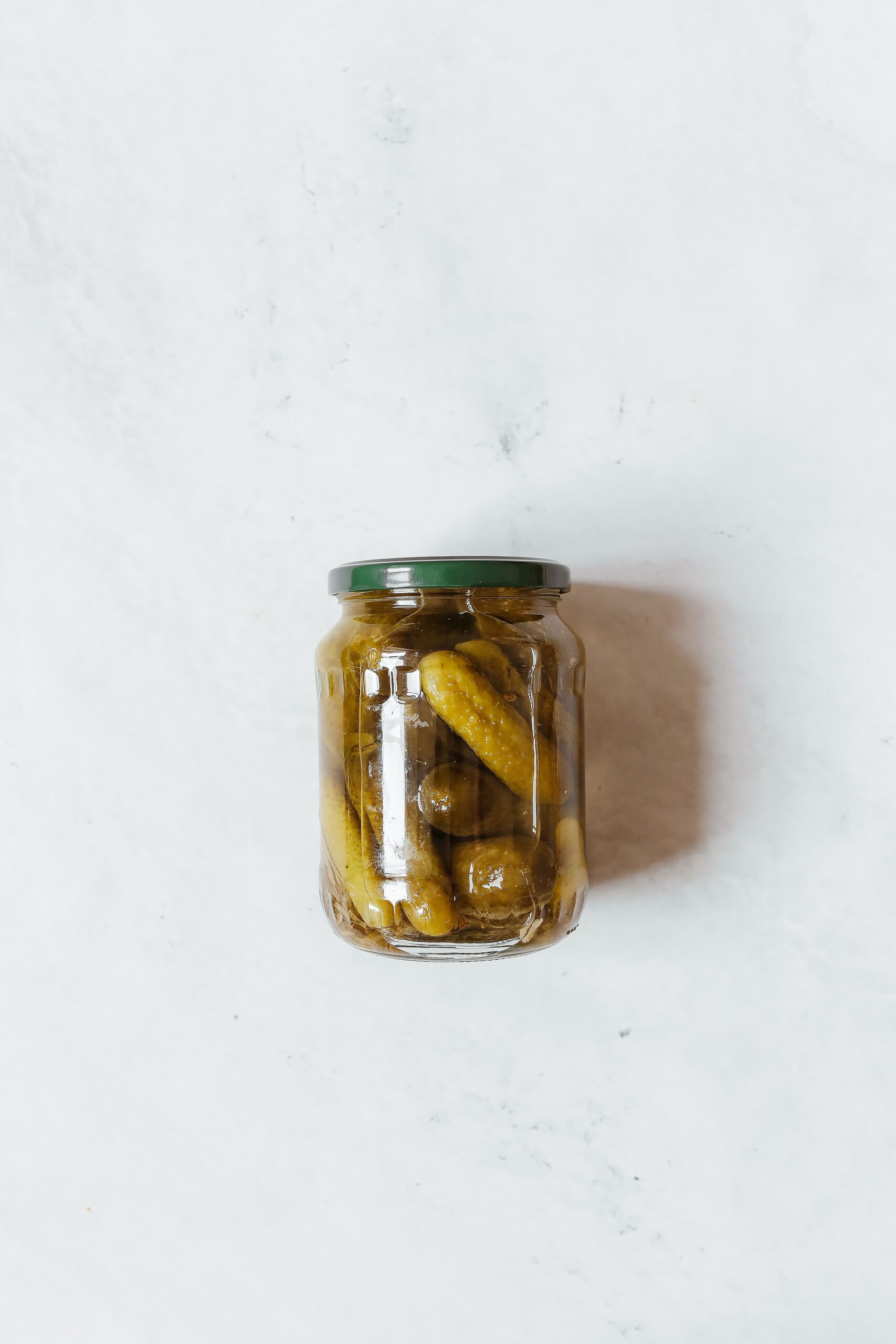As a cat owner, you may wonder whether your feline friend can enjoy the same foods as you do, such as pickles. While pickles are generally safe for humans to eat, can cats eat pickles too? In this article, we’ll explore whether cats can eat pickles and what you need to know to keep your feline friend healthy and safe.
What are pickles?
First, let’s talk about what pickles are. Pickles are cucumbers that have been soaked in a solution of vinegar, salt, and other flavorings such as dill, garlic, and onion. Pickles can be store-bought or homemade, and their sodium content can vary depending on the pickling liquid and additional seasonings.

Why Are Pickles Bad For Cats?
While cats are obligate carnivores and don’t require vegetables in their diet, they may occasionally nibble on plants and vegetables. So, it’s possible that your cat may show an interest in eating pickles, but is it safe for them to do so?
The short answer is that it’s not recommended to feed pickles to cats.
Pickles are high in sodium
Pickles are high in sodium, and excessive amounts of salt can be harmful to cats. A diet that’s high in salt can lead to salt poisoning, which can cause dehydration, vomiting, diarrhea, and even death in severe cases. Additionally, some cats have underlying health conditions such as high blood pressure, which can be worsened by consuming salty foods like pickles.
Pickles often contain spices like garlic and onion
Another concern is the additional ingredients that are commonly found in pickles, such as garlic and onion, which are toxic to cats. These ingredients can cause damage to a cat’s red blood cells, leading to anemia, lethargy, and even death.
What Should I Do If My Cat Eats Pickles?
So, what if your cat accidentally eats a small piece of pickle? In most cases, a small amount of pickle is not likely to cause harm, but you should monitor your cat for any signs of vomiting, diarrhea, or lethargy. If any reactions arise, it’s best to go to your veterinarian immediately.

How to Prevent Your Cat From Eating Pickles
If you’re a cat owner and enjoy eating pickles, you may be wondering how you can prevent your feline friend from eating them. While small amounts of pickles are generally not harmful to cats, excessive consumption can lead to health issues such as digestive upset and salt poisoning. Here are some tips on how to prevent your cat from eating pickles:
Store pickles properly
One of the easiest ways to prevent your cat from eating pickles is to store them properly. Keep pickles in a sealed container in the fridge or pantry. This will make it more difficult for your cat to access them and reduce the temptation to eat them.
Discourage your cat from the table
If your cat likes to jump up on the table during mealtime, it’s important to discourage this behavior. Teach your cat that the table is off-limits by placing them in a designated spot during mealtime. You can also use a deterrent such as a loud noise or a spray bottle to discourage your cat from jumping on the table.
Offer your cat alternative snacks
Cats are curious animals and may be interested in what their human companions are eating. Offer your cat alternative snacks that are safe and healthy for them to eat, such as small pieces of cooked meat or vegetables.

When Should I Be Concerned About My Cat Eating Pickles?
While small amounts of pickles are generally not harmful to cats, excessive consumption can lead to health issues. You should be concerned if your cat eats a large quantity of pickles or consumes pickles on a regular basis. The amount of pickles that can be harmful to a cat depends on the size of the cat and the amount of salt and other ingredients in the pickles.
If your cat has eaten a large amount of pickles or is showing signs of distress, it’s important to seek veterinary care. Some of the signs that your cat may be experiencing health issues after eating pickles include vomiting, diarrhea, excessive thirst, decreased appetite, lethargy, and changes in urination.
The high sodium content in pickles can also lead to salt poisoning in cats, which can cause a range of symptoms including tremors, seizures, and even death. If you suspect that your cat has salt poisoning, it’s important to seek veterinary care immediately.
Final Thoughts On: If Cats Can Eat Pickles
In conclusion, cats should not eat pickles or any other salty, high-sodium foods. While a small piece of pickle may not be harmful, it’s best to avoid feeding them to your feline friend altogether. If you’re looking for safe and healthy treats to give your cat, stick to cat food and cat-friendly snacks. And, as always, if you have any concerns about your cat’s health, consult with your veterinarian.

Pingback:Can Cats Eat Dill? Find Out If It's Safe - Pet Snacking